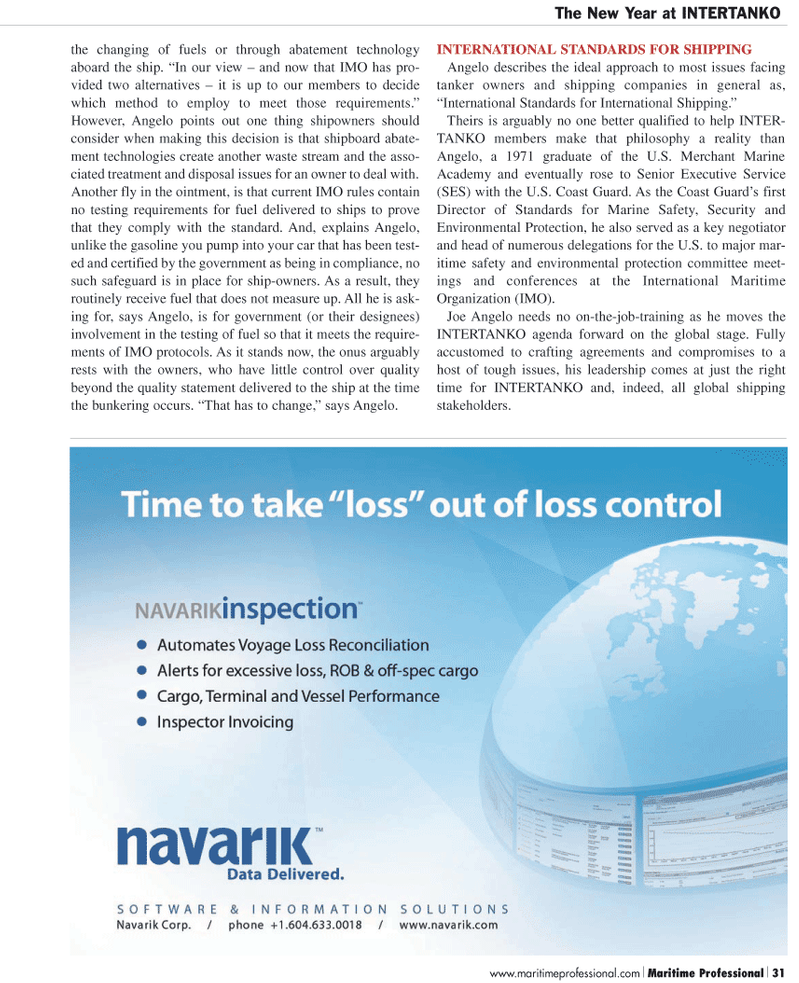
Page 31: of Maritime Logistics Professional Magazine (Q2 2011)
Energy Transportation
Read this page in Pdf, Flash or Html5 edition of Q2 2011 Maritime Logistics Professional Magazine
www.maritimeprofessional.com Maritime Professional 31 the changing of fuels or through abatement technology aboard the ship. “In our view – and now that IMO has pro- vided two alternatives – it is up to our members to decide which method to employ to meet those requirements.”
However, Angelo points out one thing shipowners should consider when making this decision is that shipboard abate- ment technologies create another waste stream and the asso- ciated treatment and disposal issues for an owner to deal with.
Another fly in the ointment, is that current IMO rules contain no testing requirements for fuel delivered to ships to prove that they comply with the standard. And, explains Angelo, unlike the gasoline you pump into your car that has been test- ed and certified by the government as being in compliance, no such safeguard is in place for ship-owners. As a result, they routinely receive fuel that does not measure up. All he is ask- ing for, says Angelo, is for government (or their designees) involvement in the testing of fuel so that it meets the require- ments of IMO protocols. As it stands now, the onus arguably rests with the owners, who have little control over quality beyond the quality statement delivered to the ship at the time the bunkering occurs. “That has to change,” says Angelo.
INTERNATIONAL STANDARDS FOR SHIPPING
Angelo describes the ideal approach to most issues facing tanker owners and shipping companies in general as, “International Standards for International Shipping.”
Theirs is arguably no one better qualified to help INTER-
TANKO members make that philosophy a reality than
Angelo, a 1971 graduate of the U.S. Merchant Marine
Academy and eventually rose to Senior Executive Service (SES) with the U.S. Coast Guard. As the Coast Guard’s first
Director of Standards for Marine Safety, Security and
Environmental Protection, he also served as a key negotiator and head of numerous delegations for the U.S. to major mar- itime safety and environmental protection committee meet- ings and conferences at the International Maritime
Organization (IMO).
Joe Angelo needs no on-the-job-training as he moves the
INTERTANKO agenda forward on the global stage. Fully accustomed to crafting agreements and compromises to a host of tough issues, his leadership comes at just the right time for INTERTANKO and, indeed, all global shipping stakeholders.
The New Year at INTERTANKO

 30
30

 32
32
